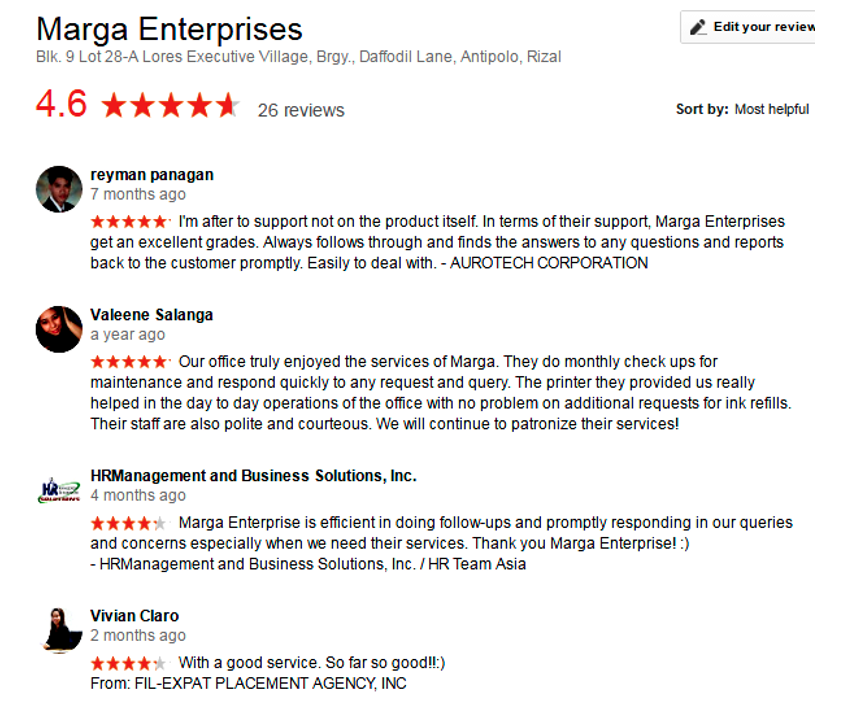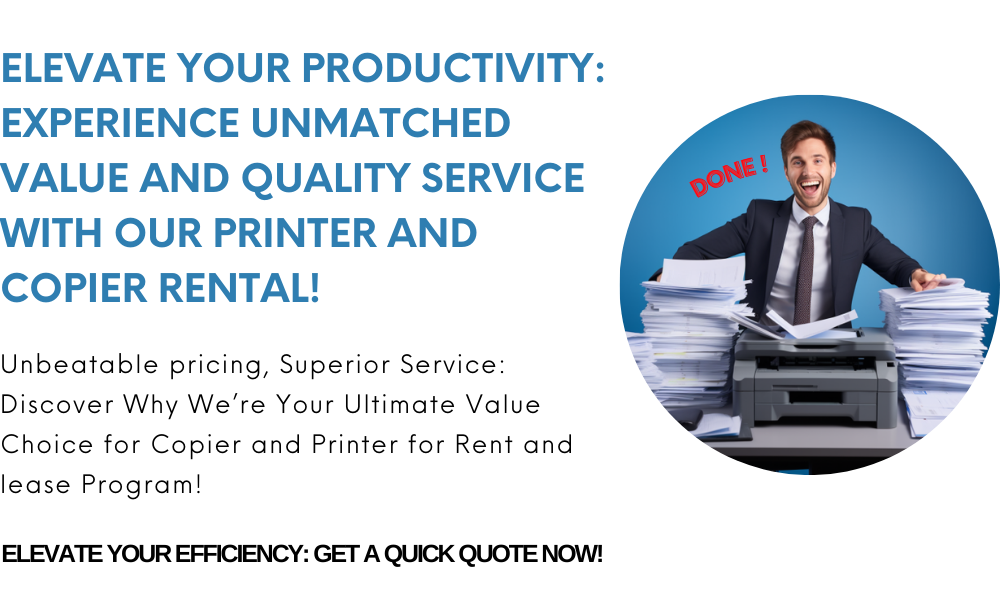Copier Rental Philippines: Tips for Small Businesses

Copier rental Philippines – For small businesses in the Philippines, managing operational costs effectively is crucial for sustainability and growth. Copier rentals represent a strategic approach to accessing essential office equipment without the high capital expenditure of purchasing outright. This article provides valuable tips for small businesses considering copier rentals, ensuring they make the most informed and cost-effective decisions.
Navigating the landscape of copier rental options can be overwhelming, but it’s a critical step towards optimizing your operational efficiency. Renting a copier can offer flexibility, allowing businesses to upgrade to newer models as technology advances or adjust their equipment based on changing needs. Moreover, it eliminates the maintenance and repair responsibilities typically associated with ownership, as most rental agreements include comprehensive service and support.
Choosing the right copier rental service requires careful consideration of several factors. It’s not just about finding the most affordable option; businesses must also evaluate the quality of the equipment, the terms of the rental agreement, and the level of customer service provided. This involves researching potential rental providers, reading customer reviews, and asking for recommendations from other businesses in your network. By taking these steps, you can ensure that you select a copier rental service that meets your specific needs and supports the efficient operation of your business.
Understanding the Benefits
Cost Savings: Rental agreements offer small businesses the ability to avoid large upfront purchases, spreading costs over time.
Flexibility: Easily adjust your rental plan based on current business needs, allowing for upgrades or downgrades as necessary.
Access to Latest Technology: Stay competitive with access to the latest copier technology, including advanced features that can streamline office operations.
Tips for Small Businesses Considering Copier Rentals
Assess Your Printing Needs: Understand your monthly print volume and specific printing requirements to select the most suitable copier model.
Shop Around: Compare offers from multiple rental providers to find the best rates and service packages.
Read the Fine Print: Carefully review the rental agreement to understand all terms, including maintenance, support, and any hidden fees.
Negotiate Terms: Don’t hesitate to negotiate the terms of your rental agreement. Providers may be willing to offer more favorable conditions to secure your business.
Consider the Total Cost of Ownership (TCO): Look beyond the monthly rental rate to consider the total cost, including supplies (except paper) and maintenance over the life of the agreement.
Plan for Growth: Choose a rental agreement that offers the flexibility to upgrade your equipment as your business grows.
FAQs about Copier Rental Philippines
How can a small business benefit from renting a copier?
Saves upfront costs, offers access to advanced technology, and provides flexibility for growth or changing needs.
What should I look for in a copier rental agreement?
Transparency in costs, clear maintenance and support terms, options for upgrades, and straightforward termination policies.
Can I upgrade my equipment during the rental period?
Yes, most rental agreements allow for technology upgrades to support your business’s evolving needs.
Are there hidden costs in copier rentals?
Be aware of potential overage fees, additional charges for supplies, and service fees not covered in the base agreement.
How do I determine the right copier model for my business?
Assess your print volume, functionality needs (e.g., scan, fax), and any specific features that could improve efficiency.
Is it possible to negotiate the terms of a copier rental?
Absolutely, providers may offer flexibility on terms, especially if you present clear requirements and expectations.
What happens if the rented copier malfunctions?
The rental provider should offer prompt repair or replacement as part of the maintenance agreement, minimizing downtime.
How long can I rent a copier for?
Rental terms vary, ranging from short-term (a few months) to long-term agreements (several years), based on your needs.
Should I rent a color or black and white copier?
Consider your specific printing needs; color copiers are essential for marketing materials, while black and white might suffice for general documents.
What’s the advantage of renting a copier over purchasing for a small business?
Renting reduces capital expenditure, ensures access to the latest technology, and includes maintenance and support, making it a cost-effective solution for small businesses.
Conclusion
Copier rentals offer a viable solution for small businesses in the Philippines looking to optimize their operational expenses. By following these tips and carefully selecting a rental provider, small businesses can enjoy the benefits of the latest copier technology with the flexibility and cost-effectiveness that rentals provide.
Call to Action
If you’re a small business in the Philippines considering a copier rental, Marga Enterprises is here to help. We offer competitive rates, flexible terms, and personalized service to meet the unique needs of your business. Contact us today to learn more about our copier rental solutions and how we can help your business thrive. Reach out at 09171642540 / 09614481276 / 02-721-69-415, or email marga.enterprises2013@gmail.com, and take the first step towards a more efficient and cost-effective printing solution.
Let Marga Enterprises be your partner in growth. Contact us now to explore the best copier rental options for your small business.
CLIENT TESTIMONIAL

